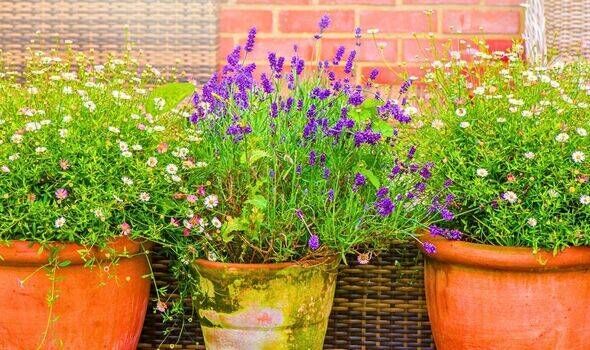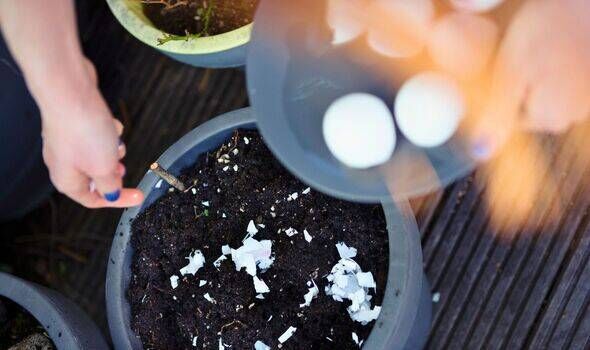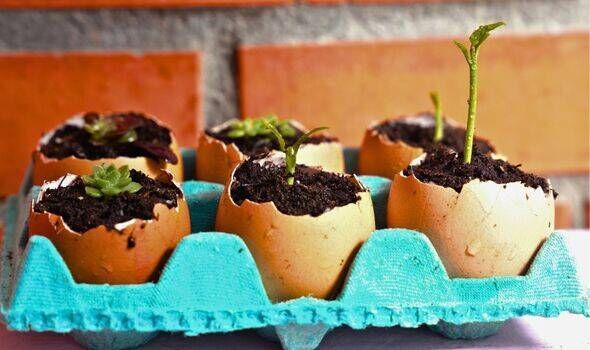Growing herbs can be quite an easy task, typically perfected near a kitchen windowsill. Nonetheless, a common error
among gardeners
is to uniformly fertilize all types of herbs.
Herbs like basil, mint, and parsley with their leafy foliage
may flourish
And they even taste better when supplied with ample nitrogen in late spring, promoting rapid development.
On the contrary, woody herbs such as rosemary, thyme, and lavender necessitate a distinct approach when it comes to fertilization. Excessive nitrogen application can result in weakened plants, reduced aroma intensity, and an increased susceptibility to diseases for these typically drought-tolerant Mediterranean species.
A significant contrast compared to their verdant equivalents.
For individuals caring for leafy herbs, applying a monthly dosage of nitrogen-rich fertilizer—or using natural alternatives such as tea bags or coffee grounds—can yield significant improvements.
In the meantime, woody herbs require just a light fertilization in spring to boost their sturdiness, according to reports.
Devon Live
.

Vladka Merva, who founded Simply Beyond Herbs and specializes as an herbalist, shares a simple suggestion for taking care of woody herbs – utilizing ground-up eggshells, according to the Express.
She explains: “Eggshells provide an excellent source of calcium that gradually dissolves into the soil each time you water your plants. This nutrient is crucial for both plant development and their overall health, as well as beneficial for the soil itself. Additionally, it aids in sustaining the correct chemical equilibrium within the earth and enhances how effectively water permeates through the ground.”
Adding calcium to your woody herbs via eggshells is a smart move for healthy growth and avoiding issues like blossom end rot. This not only fortifies the plants themselves but also elevates soil alkalinity, which herbs such as lavender and rosemary favor.
Moreover, the inherent sharpness of eggshells serves as an effective repellant, shielding your kitchen-garden herbs from pests that commonly infest houseplants.

Vladka shared this tip: “Crushed eggshells serve as pest control. Slugs, cutworms or other insects are put off by the crashed pieces of eggshells and rather leave.”
Here’s how you can utilize eggshells to boost your woody herbs:
Start by thoroughly washing the eggshells to eliminate any leftover yolk that might attract pests. Allow the eggshells to completely dry in a warm place, and then crush them into fine pieces with a rolling pin to aid in decomposition.
Then, just scatter the finely crushed eggshells into the soil surrounding your plants like lavender, thyme, or rosemary.
If you’re cultivating herbs indoors, you can get creative by turning eggshells into quaint planting pots. Use a sharp knife to carefully remove the pointy top of an egg, keeping the lower part whole.
Make sure they’re well cleaned to avoid attracting pests or growing mold due to remaining egg yolk, and use these quirky, makeshift pots for growing your herbs like lavender, thyme, or rosemary.

While the eggshell is still moist, use a small needle to poke a hole at the bottom of each shell. This lets water drain from the herbs, keeping the soil from getting too soggy.
Scoop soil into each eggshell with a tablespoon, leaving about a half-inch space at the top. You can find herb-specific soil at most garden stores, but for woody herbs, opt for a light, sandy, slightly alkaline mix.
Next, add a handful of seeds to each eggshell and use a permanent marker to write the herb’s name on them. Ensure they get water every day and plenty of sunlight; soon enough, you’ll enjoy your very own flourishing herb garden.


